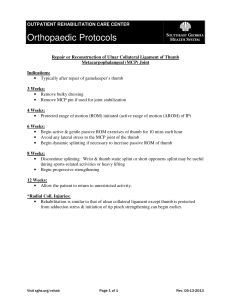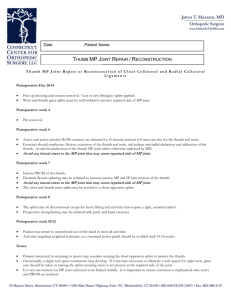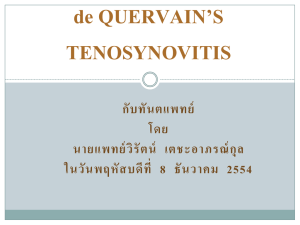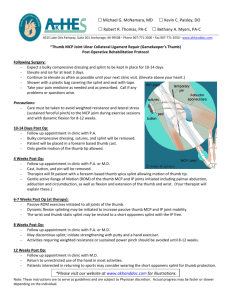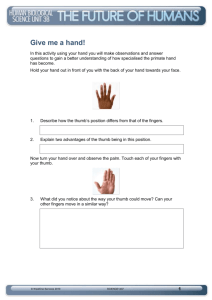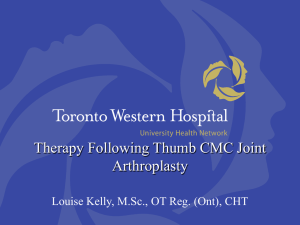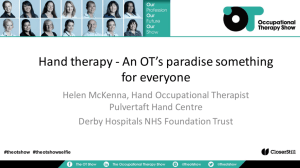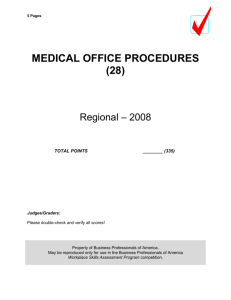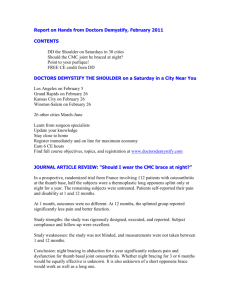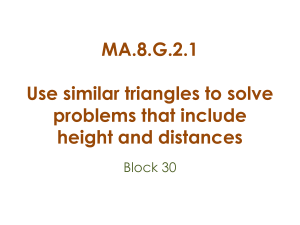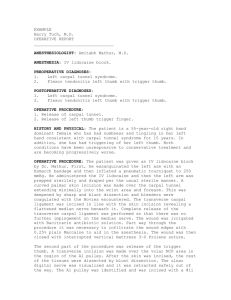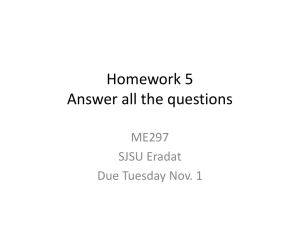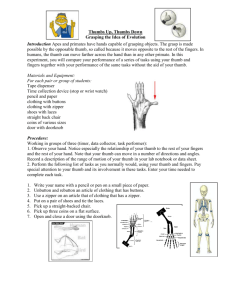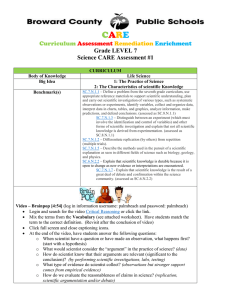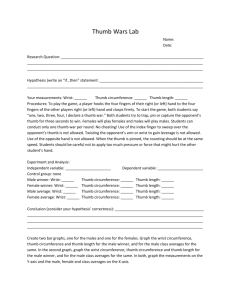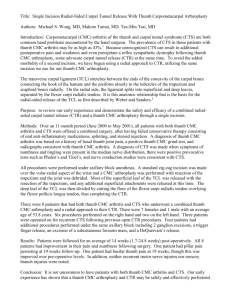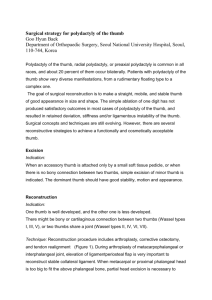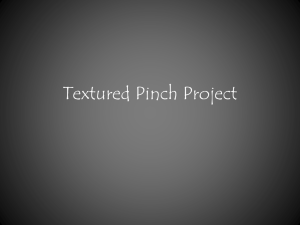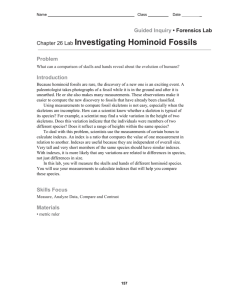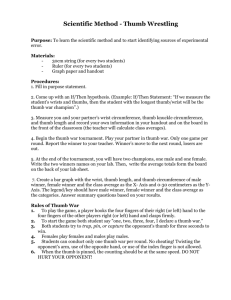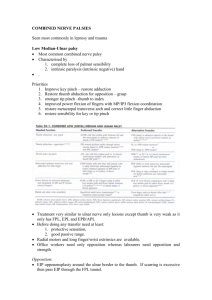Osteoarthritis of the CMC Joint
advertisement
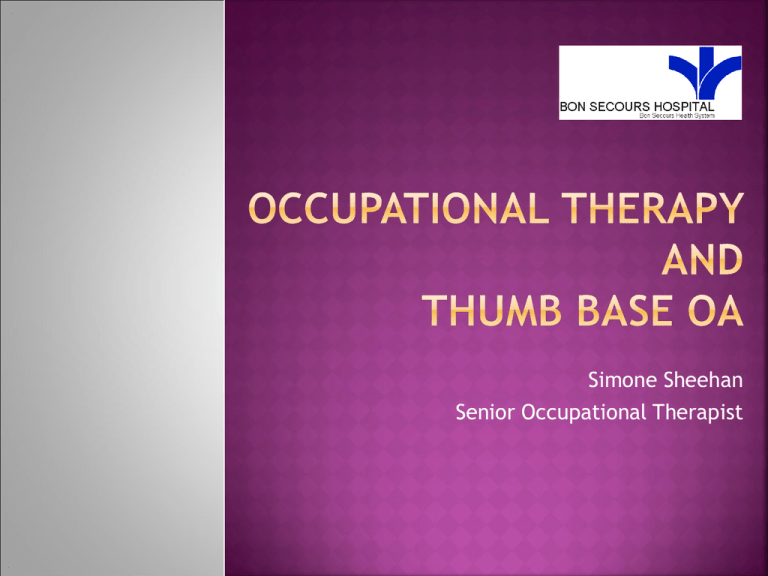
Simone Sheehan Senior Occupational Therapist “On the length, strength, free lateral motion and perfect mobility of the thumb, depends the power of the human hand” ~Sir Charles Bell, 1833~ Tends to occur in women older than 40 years of age (Dray & Jablon, 1987; Jonsson & Valtysdottir, 1995) and affects 1/3 of females over the age of 50 (Armstrong, 1994). A painful thumb can truly limit the ability to perform activities. In fact, a severely painful thumb can limit hand function by 45% (Swanson, 1973). 1. Pain / aching around base of thumb – may radiate down thumb or up forearm (usually most intense during pinch) 2. 3. Tenderness over the CMC joint Stiffness in the CMC joint in the morning or after inactivity If inflammation is severe – 1. Swelling 2. Warmth 3. redness Lateral pinch Tip pinch Grasp pinch Palmar pinch Education Task modification Medication Splints Ice / heat Exercise Steroid injection Surgical options Thumb CMC joint is a saddle joint Reduce excessive loading on joints Use joints in their most stable and functional positions Avoid pain in activities Maintain ROM Distribute as much load over several joints Balance activity and rest Use stronger, larger joints Avoid twisting forces Avoid staying in one position for long periods / static grips (Melvin, 2002) Reduce effort Gadgets Compensate Nice Guideline 59 – Osteoarthritis People with osteoarthritis who have biomechanical joint pain or instability should be considered for assessment for bracing/joint supports as an adjunct to their core treatment. Valdes & Marrik (2010) The current literature supports the use of orthotics, hand exercises, application of heat, and joint protection education combined with provision of adaptive equipment to improve grip strength and function. Rannou et al (2009) Night time splinting is an effective treatment of base of thumb OA Day et al (2004) Thumb splinting together with corticosteroid provides relief – unable to solely attribute effects to either modality Carreira, Jones & Natour (2007) Splint is effective to decreased pain scores in trapeziometacarpal OA patients Boustedt & Nordenskold (2007) Women with thumb base OA can expect improvement concerning pain on motion and hand grip force post hand OA programme partipation and combining it with night splints they can expect decreased pain at night. Stamm et al (2002) Joint protection and hand home exercises, easily administered and readily acceptable interventions, were found to increase grip strength and global hand function. Splinting aims to enhance pain-free use of the thumb and allow individuals to partake in previously aggravating activities, without pain “A splint by its very presence is doing harm as it inhibits free movement. It is only justified if the specific good compensates for the general harm” Paul W. Brand Provides external support Limits joint movement Less pain We all use our hands in different ways and so it is important to look carefully at each individual, their characteristics, needs and lifestyle. Client Centred-ness Comfort Cosmesis Convenience Less is more Follow up McKee & Rivard (2004). Orthoses as enablers of Occupation: Client centred splinting. Canadian Journal of Occupational Therapy (71, 306-314). Hours: 8.30 – 16.30 Monday - Friday Cost: Inpatient: Included in bed rate Outpatient: €70/hr, €60/45mins €50/30mins, €30/15mins Aids / Appliances: Supplied and billed Referrals to be sent to: Occupational Therapy Department, Bon Secours Hospital, College Road, Cork. 021 4801630 Details to be included: Name, Address, DOB, contact number, medical history and presenting complaint.
